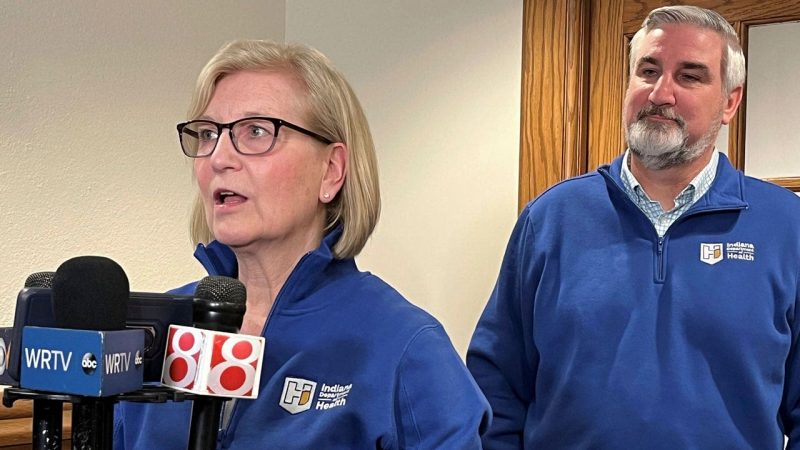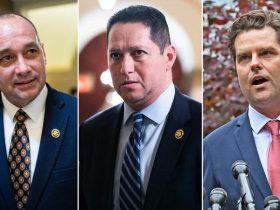The Indiana governor’s proposal for a broad expansion of county-level public health programs won its first endorsement from state legislators on Wednesday.
The state Senate’s health committee voted 12-0 in support of a bill laying out the responsibilities that local health departments would have if county officials accept a major increase in state funding being sought by Republican Gov. Eric Holcomb.
State Health Commissioner Dr. Kristina Box, several medical organizations and business groups urged lawmakers to support the plan, pointing to Indiana’s poor national rankings in areas such as smoking, obesity and life expectancy.
The governor’s plan would direct $100 million in the next state budget year and $200 million in the following year toward boosting Indiana’s county public health department funding from its 45th-place national ranking. The state now directs about $7 million a year to county health departments, which are primarily funded by local taxes.
While county officials would have the option of accepting the money and expanding services, some opponents with grievances over government-ordered COVID-19 precautions told the committee they feared the plan would result in the state health department gaining more authority.
The bill approved by the committee would establish ‘core public health services’ to be provide by county departments. Those would include access to required childhood vaccinations, emergency preparedness, restaurant and sewage system inspections, communicable disease prevention and smoking cessation programs.
A commission appointed by Holcomb found that all but about six of Indiana’s 92 counties are spending less than half the national median per person on public health efforts.
‘Where you live in Indiana currently determines whether your local health department can provide you the full range of public health services,’ Box told the committee.
Leaders of the Republican-dominated Legislature have generally supported Holcomb’s proposal but have not committed to granting his full funding request. Lawmakers might not make that decision until a new state budget plan is completed in April.
Statewide organizations representing county officials told the committee Wednesday they believed local leaders would keep control by deciding whether to opt into the expansion program or maintain state funding levels.
Some county leaders, however, said they believed the expansion would eventually lead to state control of local health departments.
‘I would prefer the state to provide grants on a topic-by-topic basis with local control on whether to accept the grant or not and how we handle that guidance, not mandates, from the state after the COVID destructive mandates,’ said Brad Rogers, a Republican county commissioner from northern Indiana’s Elkhart County.
Senators cited concerns about long-term health problems across the state, while plan opponents who spoke focused on issues such as complaints over federal approval of COVID-19 vaccines and Holcomb’s executive orders early in the pandemic for business closures and a face mask mandate. One opponent argued the plan would lead to what he called more government ‘tyranny.’
Similar grievances were aired to Indiana lawmakers as they debated a proposal last year that failed to win passage aiming to severely limit the COVID-19 vaccine requirements that businesses could impose on employees.
‘We have high infant mortality rates,’ Republican Sen. Vaneta Becker of Evansville said as she voted in favor of the health plan Wednesday. ‘We have high obesity, lots of health issues in the state that need to be addressed.’








